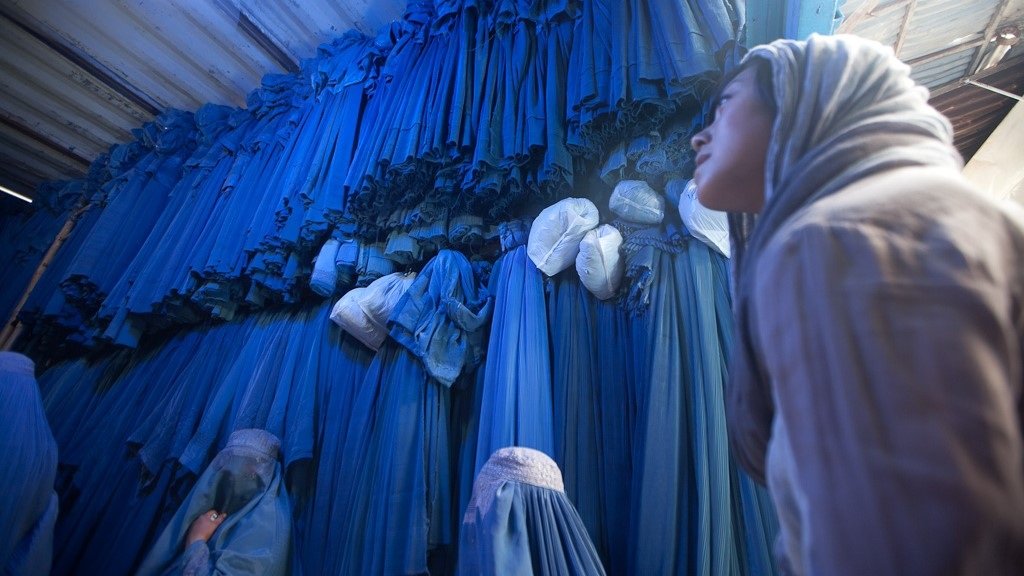Afghanistan: Taliban’s new media regulations are the latest effort to silence women, stifling free expression in country
Image courtesy of IMTFI (Wikimedia Commons)
PEN International is alarmed by the content of new media regulations published by the Taliban government, which include measures that heavily discriminate against women participating in Afghanistan’s public life. The guidelines are just one example of the growing repression imposed by the Taliban following their seizure of power in the wake of the collapse of Afghanistan’s national government in August this year.
On 21 November 2021, the acting minister of the Taliban’s Ministry for the Propagation of Virtue and the Prevention of Vice, Mohammad Khalid Hanafi, issued the heavily restrictive media guidelines during a meeting with Afghan journalists and representatives of the few remaining media networks in the country.
The guidelines seek to reimpose the Taliban’s ultra-conservative views on Sharia across Afghan civil society, severely constraining the space for free expression. Measures in the guidelines include the prohibition of drama series with female actors, the banning of any electronic media that portrays the Prophet Mohammad or other religious figures and the forbidding of any comedy or satirical program that may cause humiliation or insult. The guidelines also include a provision instructing female journalists to wear the 'Islamic hijab', although details on the specific veil required were not provided.
This is the first edict of its kind to have emanated from the newly revived Ministry for the Propagation of Virtue and the Prevention of Vice, which previously oversaw the systematic denial of even the most basic freedoms to women and girls, along with widespread restrictions on all forms of expression during the Taliban’s previous rule over Afghanistan. The fact that this ministry now occupies a building that previously housed the national government’s Ministry of Women’s Affairs provides a vivid illustration of the regime’s attitude towards women and girls.
These latest guidelines contrast sharply with the Taliban’s attempts to burnish its international image and domestic legitimacy through stated assurances of providing greater freedoms for women and for freedom of expression under their rule. However, these assurances ring hollow for those who are now forced to live under a repressive Taliban rule. Women-led protests that took place in the immediate aftermath of the Taliban’s return to power have been met with violence and new regulations intended to silence their peaceful expression. Earlier this month, the bodies of four women have been found in the northern city of Mazar-I-Sharif, including one of the city’s most high-profile women’s rights activists, Frozan Safi.
As PEN International has reported previously, the escalation in the targeted killings of intellectuals, university students and civil society activists by the Taliban and other militant groups over the last year has had a devastating impact on Afghanistan’s fragile civic space. The Taliban have routinely engaged in violent reprisals against anyone associated with the Afghan government or international media organisations. This has resulted in a mass exodus of journalists, writers, and other public intellectuals from the country, fearing persecution by the Taliban for their peaceful expression.
The resulting brain drain imperils Afghanistan’s future, robbing the country of those most able to address the country’s pressing challenges and forcing those remaining into silence. By denying Afghans the space to openly express, exchange, and debate ideas, the Taliban’s repressive actions risk plunging the entire country into protracted conflict and suffering.
For further information please contact Ross Holder, Asia Programme Coordinator at PEN International, Unit A, Koops Mill, 162-164 Abbey Street, London, SE1 2AN, Tel.+ 44 (0) 20 7405 0338, email: [email protected]

